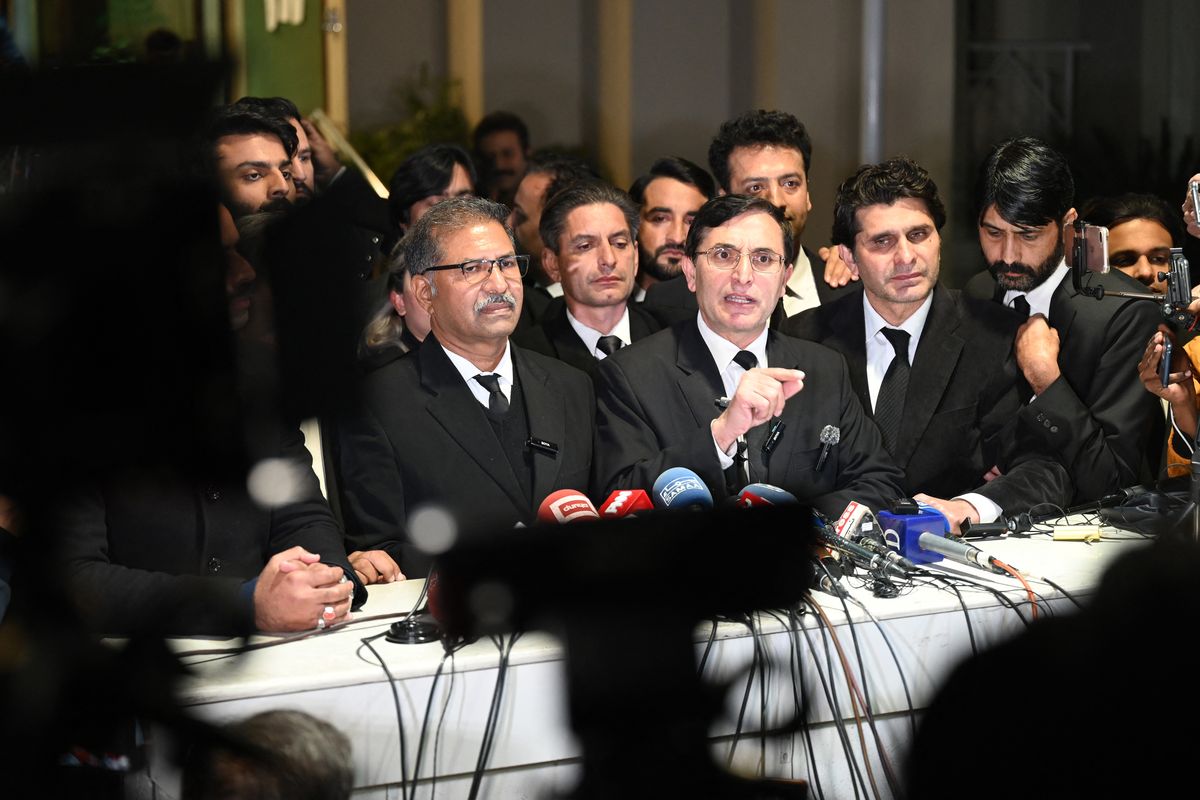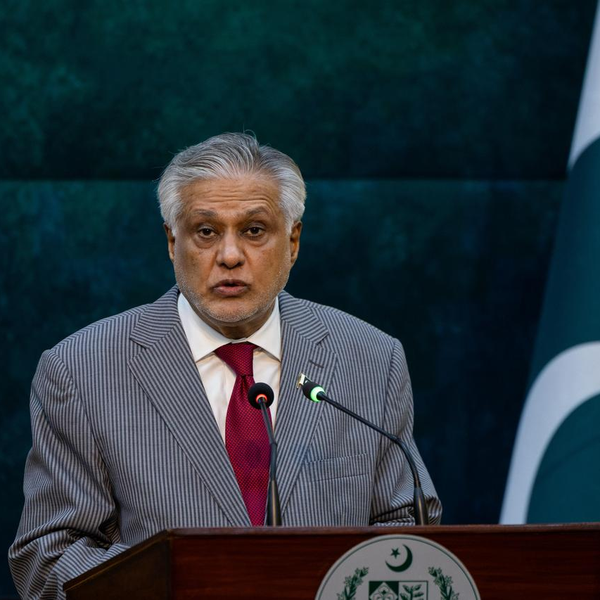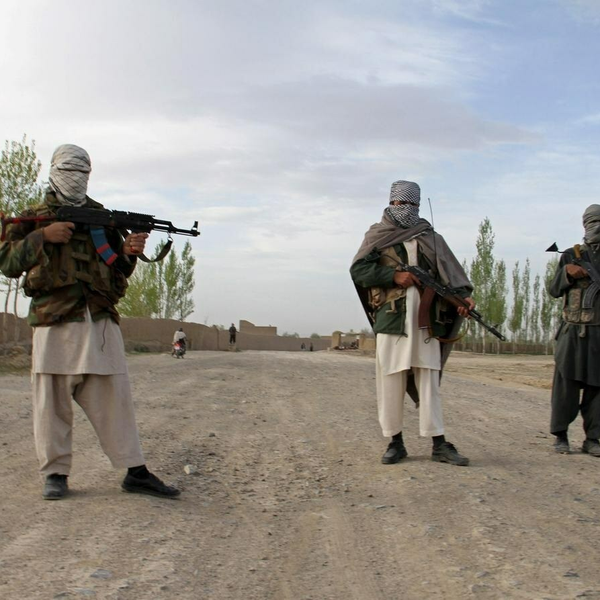Pakistan's main opposition party takes 26th amendment fight to Supreme Court
Petition claims coerced passage, threats to judicial independence
Ali Hamza
Correspondent
Ali; a journalist with 3 years of experience, working in Newspaper. Worked in Field, covered Big Legal Constitutional and Political Events in Pakistan since 2022. Graduate of DePaul University, Chicago.

Pakistan Tehreek-e-Insaf (PTI) party's chief Gohar Khan (3rd R) and legal team members speak to media outside the Supreme Court in Islamabad on January 13, 2024.
PTI files 33-page petition claiming reforms threaten judicial independence
Constitutional benches questioned, full Supreme Court hearing requested
Petition seeks to void amendment and investigate coerced passage claims
Pakistan's main opposition party filed on Saturday the latest legal challenge against the country's 26th constitutional amendment, arguing the sweeping judicial reforms undermine the nation's legal system and violate fundamental rights.
The Pakistan Tehreek-e-Insaf (PTI) petitioned the Supreme Court to strike down the amendment, which significantly altered the nation's judicial framework and criminal justice procedures. The 33-page challenge claims the reforms were rushed through parliament without proper review and threaten judicial independence.
The challenge represents the latest confrontation between Pakistan's opposition and the government over these judicial reforms that have sparked heated debate about the separation of powers in the country's legal system since they were first passed in September 2024.
PTI's petition questions the legitimacy of constitutional benches created under the amendment, arguing they cannot fairly judge the validity of their own authority. PTI has requested the case be heard by the full Supreme Court to avoid potential conflicts of interest.
The petition details alleged irregularities in the amendment's passage last year, when lawmakers were reportedly asked to vote on legislation they hadn't seen. The draft was neither made public nor approved by the Federal Cabinet before the late-night session.
PTI's criticisms
The initial concern centers on whether Article 239 permitted valid passage, given both houses of Parliament had incomplete composition due to missing proportional representation for National Assembly reserved seats and absent Khyber Pakhtunkhwa representation in the Senate stemming from the election commission's failure to hold elections.
There are further questions about whether the amendment violates core constitutional "salient features" including judicial independence, separation of powers, parliamentary democracy, federalism, and access to justice. The legitimacy of the enacting parliament itself is challenged given allegations of systematic election irregularities in the 2024 General Elections that may have subverted popular will.
They also argue the democratic validity of votes cast under potential coercion, duress or improper influence must be examined in light of constitutional principles and Article 63A. Finally, the Supreme Court (Number of Judges) (Amendment) Act, 2024 requires scrutiny for potentially enabling "court-packing" that could structurally interfere with and undermine judicial independence.
These issues collectively speak to fundamental questions about constitutional process, democratic legitimacy, and the separation of powers in Pakistan's governance structure.
Demands
PTI has petitioned the Supreme Court to declare the 26th Amendment unconstitutional, arguing that it violates key constitutional principles including judicial independence, rule of law, federalism, separation of powers, parliamentary democracy, and fundamental rights (particularly access to justice). The petition seeks to have the amendment declared void from its inception and stripped of all legal effect.
The petition also requests the Supreme Court to order an independent and impartial investigation, through whatever means the Court deems appropriate, into allegations of coercion, duress, and procedural irregularities during the parliamentary process that led to the amendment's passage.
Lastly, the petition also seeks to declare unconstitutional and without legal authority the nomination and appointment of constitutional benches and additional judges made by the Judicial Commission of Pakistan under the 26th constitutional amendment.







Comments
See what people are discussing